Top Rankings
Mad River Local School District ranks among the top 20% of public school district in Ohio for:
Category
Attribute
Community Size
Largest student body (number of students) (Top 1%)
For the 2025 school year, there is 1 public preschool serving 128 students in Mad River Local School District.
Public Preschools in Mad River Local School District have a diversity score of 0.57, which is less than the Ohio public preschool average of 0.58.
Minority enrollment is 38% of the student body (majority Hispanic and Black), which is less than the Ohio public preschool average of 39% (majority Black).
Overview
This School District
This State (OH)
# Schools
9 Schools
839 Schools
# Students
3,750 Students
334,112 Students
# Teachers
206 Teachers
18,897 Teachers
Student : Teacher Ratio
18:1
18:1
District Rank
Mad River Local School District, which is ranked within the bottom 50% of all 918 school districts in Ohio (based off of combined math and reading proficiency testing data) for the 2021-2022 school year.
The school district's graduation rate of 87% has increased from 82% over five school years.
Overall District Rank
#545 out of 929 school districts
(Bottom 50%)
(Bottom 50%)
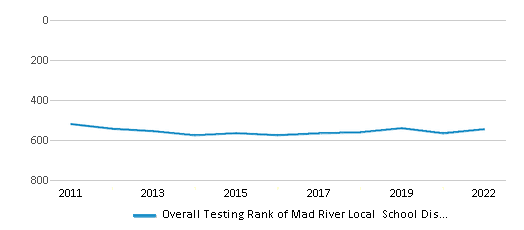
Math Test Scores (% Proficient)
43%
52%
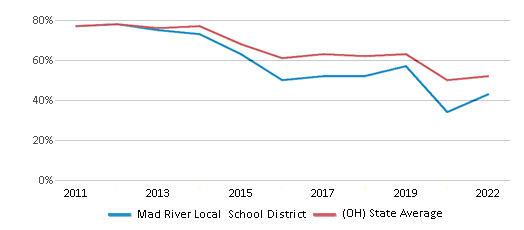
Reading/Language Arts Test Scores (% Proficient)
54%
60%
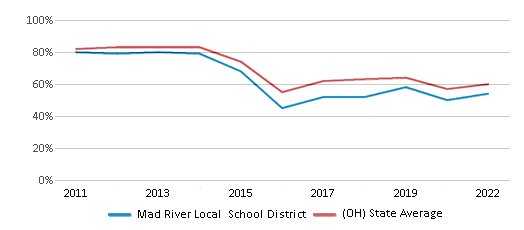
Science Test Scores (% Proficient)
63%
63%
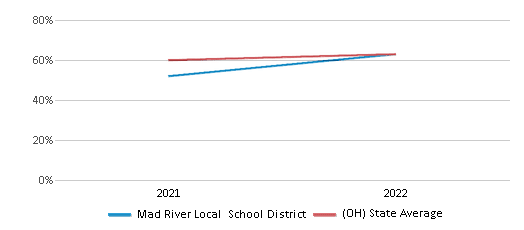
Graduation Rate
87%
86%
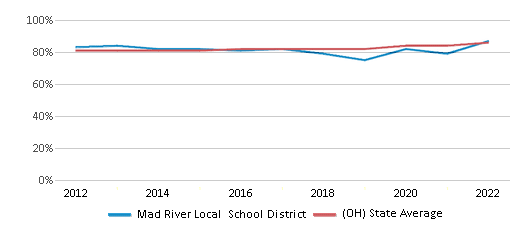
Students by Ethnicity:
Diversity Score
0.50
0.58
# American Indian Students
4 Students
462 Students
% American Indian Students
n/a
n/a
# Asian Students
79 Students
8,061 Students
% Asian Students
2%
3%
# Hispanic Students
289 Students
30,384 Students
% Hispanic Students
8%
9%
# Black Students
405 Students
67,190 Students
% Black Students
11%
20%
# White Students
2,592 Students
204,949 Students
% White Students
69%
61%
# Hawaiian Students
4 Students
329 Students
% Hawaiian Students
n/a
n/a
# Two or more races Students
377 Students
22,737 Students
% of Two or more races Students
10%
7%
Students by Grade:
# Students in PK Grade:
128
45,802
# Students in K Grade:
281
55,948
# Students in 1st Grade:
290
51,388
# Students in 2nd Grade:
288
49,073
# Students in 3rd Grade:
269
40,515
# Students in 4th Grade:
274
38,905
# Students in 5th Grade:
269
30,860
# Students in 6th Grade:
263
12,193
# Students in 7th Grade:
292
4,329
# Students in 8th Grade:
262
4,221
# Students in 9th Grade:
341
368
# Students in 10th Grade:
277
211
# Students in 11th Grade:
281
188
# Students in 12th Grade:
235
111
# Ungraded Students:
-
-
District Revenue and Spending
The revenue/student of $14,200 in this school district is less than the state median of $17,287. The school district revenue/student has stayed relatively flat over four school years.
The school district's spending/student of $14,832 is less than the state median of $17,235. The school district spending/student has stayed relatively flat over four school years.
Total Revenue
$53 MM
$28,879 MM
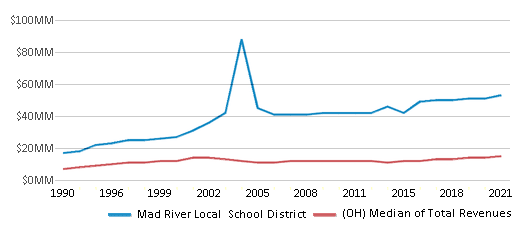
Spending
$56 MM
$28,792 MM
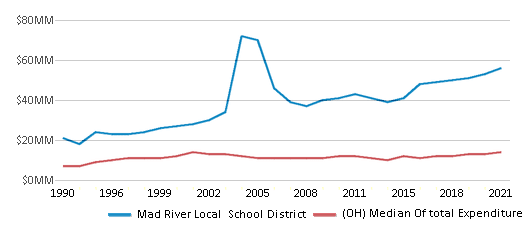
Revenue / Student
$14,200
$17,287
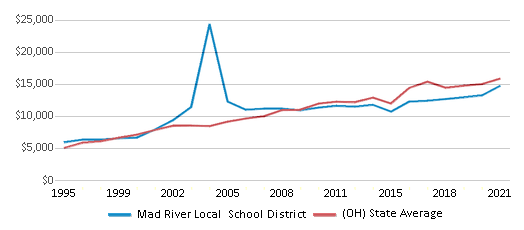
Spending / Student
$14,832
$17,235
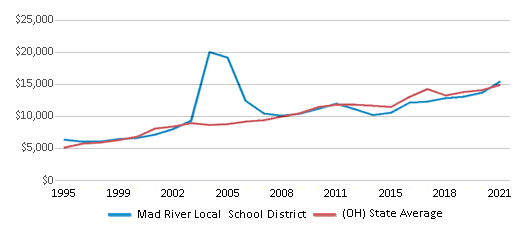
Best Mad River Local School District Public Preschools (2025)
School
(Math and Reading Proficiency)
(Math and Reading Proficiency)
Location
Grades
Students
Rank: n/an/a
801 Old Harshman Rd
Dayton, OH 45431
(937) 259-6603
Dayton, OH 45431
(937) 259-6603
Grades: PK
| 128 students
Recent Articles

Sexual Harassment at Age 6: The Tale of a First Grade Suspension
A six-year old in Aurora, Colorado, was suspended after singing an LMFAO song to a little girl in his class and reportedly “shaking his booty.” We look at the case and the sexual harassment problem in public schools today.

How Scaffolding Could Change the Way Your Child Learns
This article explores the concept of instructional scaffolding, a teaching method that enhances learning by breaking down complex tasks into manageable parts. It highlights how scaffolding supports students in developing critical thinking skills and becoming more independent learners. The article discusses the benefits of scaffolding, including improved engagement and reduced anxiety, and provides strategies for its implementation across various educational levels.

February 05, 2025
Understanding the U.S. Department of Education: Structure, Impact, and EvolutionWe explore how the Department of Education shapes American education, from its cabinet-level leadership to its impact on millions of students, written for general audiences seeking clarity on this vital institution.





